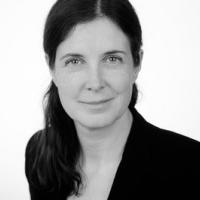Bio-energy and its Controversial Role in EU Climate Policy
- Event
- Date
-
- Location
- Berlin, Germany
- Speaker
-
Stephanie WunderHelmut Lamp (Bundesverband BioEnergie e.V.)Sabine Blossey (Ministry of Environment, Health and Consumer Protection of the Federal State of Brandenburg)
In January 2008, the European Commission published ambitious targets with regard to the future share of biofuels in the transport sector. By 2020, 10% of the fuels used in transport shall be biofuels. Furthermore, in the climate policies of individual Member States, biofuels also play an important role. However, more and more critics argue against the use of bio-energy. Controversies emerge concerning the climate footprint of bio-energy and the effects of biomass use on biodiversity and food security. The Climate Talk convened experts who discussed potential strategies to address these problems.
The 13th Climate Talk took place at the Stiftung Wissenschaft und Politik in Berlin. The discussion was preceded by three introductory presentations. Stephanie Schlegel (Ecologic Institute) started off on the bio-energy politics of the EU, and focused on the Climate and Energy Package, which was presented in January 2008 by the European Commission. Helmut Lamp (Member of the Bundestag and chairman of the board for the Bundesverband BioEnergie e.V. (Federal association for bio-energy)) presented the possible role of bio-energy in the future energy-mix, and debated the pro and cons of bio-energy production. Finally, Sabine Blossey (Ministry for rural development, environment and consumer protection in Brandenburg) addressed the significance, the chances and the difficulties of bio-energy development at the regional level.
The Climate Talk brought up a multitude of aspects that were highlighted and discussed.
One of the foci of the discussion was the climate footprint of biofuels, which is enlarged through a partially energy-intensive production, transport and – in some cases – through deforestation. The significance of imports needed to achieve bio-energy targets was a particularly controversial topic. It was emphasised several times that the area under crops in the EU would not suffice to achieve the biofuels supply required by the European market. It can, therefore, be assumed that imports will be necessary on a permanent basis. In this context, Russia’s potential was brought into the debate, as the country has large amounts of fallow land on which bio-energy could be produced.
The necessity, feasibility and penetrating power of a certification scheme were a further important topic of the debate. Problems such as biodiversity loss due to cultivation of energy crops in subtropical countries or (the increase in) food scarcity make such a measure highly relevant. The demand for sound sustainability criteria met with approval among the participants. Such criteria could ensure that the EU strategy of promoting biofuels would not have adverse impacts in the above mentioned issues. It became clear, however, that the determination of content and scope would be as difficult as the implementation of the criteria itself. Therefore, there were doubts about a certification programme’s ability to ensure sustainability.
After ample debate, these and other issues were further discussed in a nearby restaurant.



